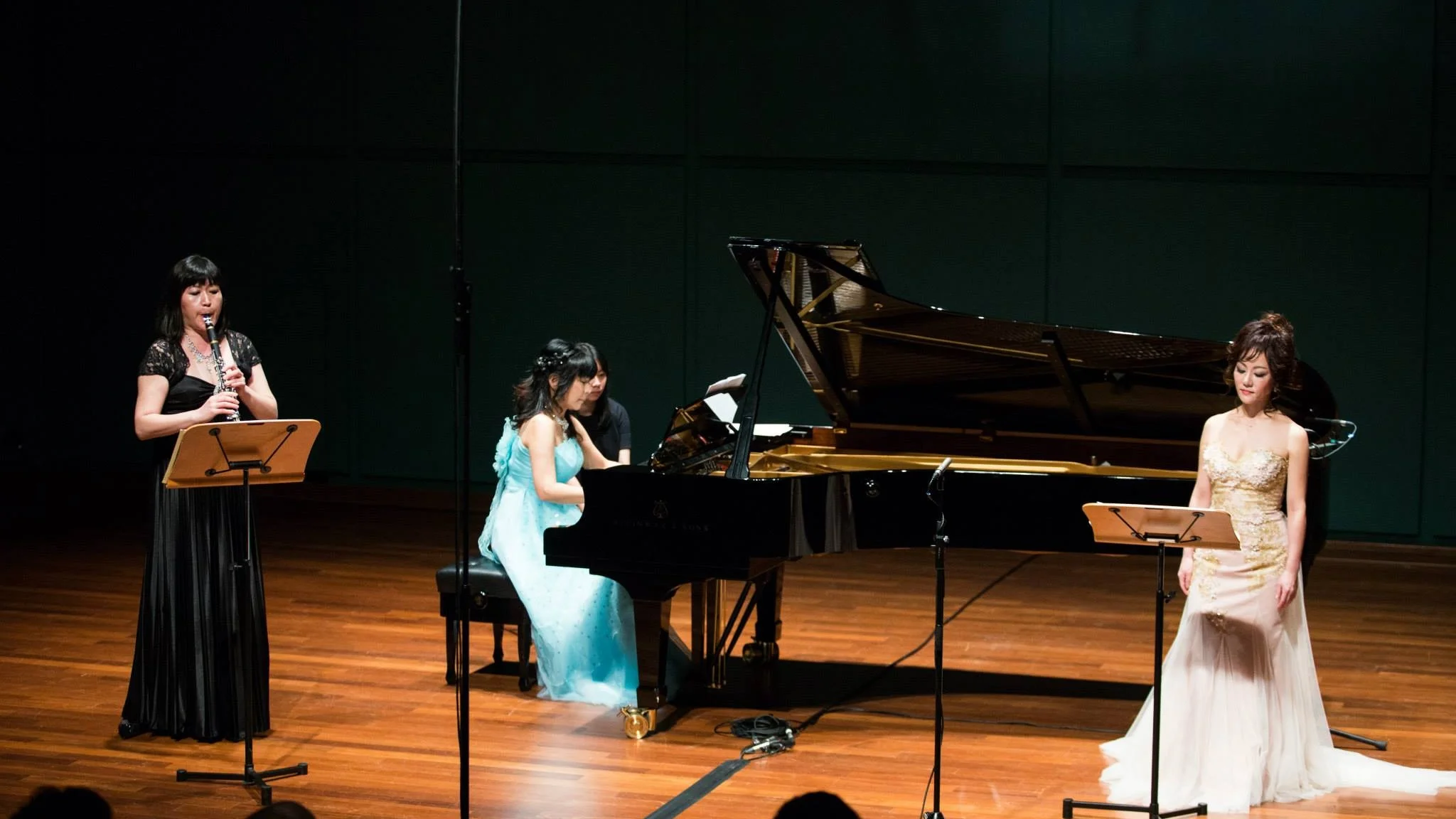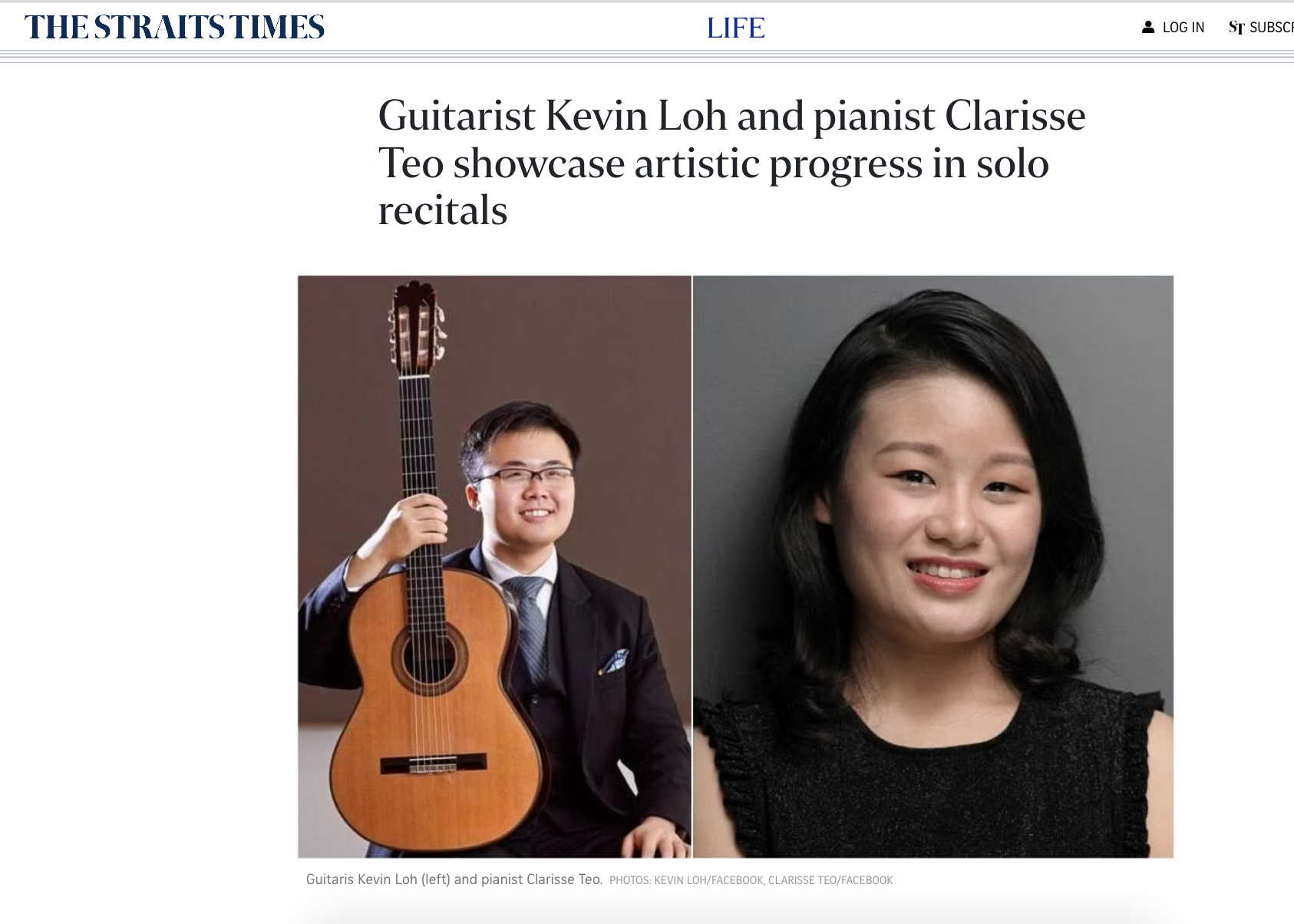In anticipation of our Souvenirs de Fete Concert, pianist Miyuki Washimiya and composer Lim Kang Ning were featured in Singapore’s Chinese daily newspaper Lianhe Zaobao on 11th November 2022.
National Arts Council's Patron of the Arts Award 2022
Congratulations to our founder Ms Kris Tan on receiving the National Arts Council of Singapore’s Distinguished Patron of the Arts Award 2022, acknowledging the Kris Foundation's support towards the arts and its valued role in building a vibrant and sustainable arts scene in Singapore. This is Ms Kris Tan's 10th award from the NAC as an arts patron since 2012. Mr Edwin Tong, Minister for Culture, Community and Youth, graced the occasion, thanking over 200 patrons for their generous and continuous support.
https://www.sso.org.sg/bravissimo/bravissimo-september-2022/patron-of-the-arts-awards-2022-recognising-our-generous-supporters
Review of Die Dunkelrosa Rose | The Straits Times
A review of Kris Foundation’s Die dunkelrosa Rose Concert featuring violinist Shuxiang Yang and pianist Azariah Tan, was published in The Straits Times, Singapore on 24th August 2021. Read the full review here.
Review of Kris Foundation's Ray of Light Concert | The Straits Times
A review of Kris Foundation’s Ray of Light Concert featuring guitarist Kevin Loh was published in The Straits Times, Singapore on 22nd August 2022. Read the full review here.
Programme Notes: Serenata del Caffè by Lim Kang Ning
Lim Kang Ning (b.1994)
Serenata del Caffè
Whenever I think of serenades, I think of it as an embrace — warm and comforting; something almost coaxing. This piece was written in January and completed in May 2020 for my friend, Cherilyn. When I first met her, I always knew her as a reserved and measured person. Yet whenever I see her post snippets of herself playing the classical guitar, I am reminded time and again, of the warmth and sincerity that belies her cool exterior. Perhaps it is the innate timbre of the classical guitar, fused with the romanticised idea of the troubadour or the simple fact that she was my friend. But whenever she plays the instrument, I am deeply moved by the warmth of her musical tone and sensitivity to phrasing. It was as if she was giving her friends a big hug through the medium of music.
So when she shared some of the difficult moments she experienced as a classical guitarist with me, I wanted to do the same for her. I wanted to comfort her, but words did not seem to suffice. Music seemed to be the only medium that would justify the ‘words’ of consolation I wanted to express. I wanted to compose a guitar piece that she could seek solace in, and associate friendship and all other positive emotions with. A guitar piece that allowed you to luxuriate in its rich sonorities through a gentle, swaying rhythm. A guitar piece that would return the hug she so generously gave us before.
In order to achieve that, I used a lot of pitches on the open strings and frequently utilised the bass strings to maximise the instrument’s resonance. Arpeggiac figures were also used to accentuate the undulating motion of the piece and propel the music forward. Unbeknownst to the listeners, the spontaneity of the improvisatory-like melody is actually attributed to the fluid change of time signatures in the score. The music oscillates irregularly between having four and three beats in a bar, hence creating a sense of unpredictability.
In terms of the composition’s overall structure, it can be broadly thought of as being in rondo form (ABACAD…) with a coda. It mainly alternates between an arpeggiac section and a chordal section. However, when the arpeggiac section returns for the last time, it arrives in a different harmonic centre, colouring the music with a hue that is completely different from the one the music started in.
Serenata del Caffè was premiered by guitarist Kevin Loh at Kris Foundation’s “Ray of Light” on 17 August 2022 at the Esplanade Recital Studio.
Read more about Ray of Light.
Guitarist Kevin Loh and composer Lim Kang Ning | Lianhe Zaobao
In anticipation of our Ray of Light Concert, guitarist Kevin Loh and composer Lim Kang Ning were featured in Singapore’s Chinese daily newspaper Lianhe Zaobao on 4th August 2022.
Violinist Shuxiang Yang and pianist Azariah Tan | Lianhe Zaobao
In anticipation of our Die Dunkelrosa Rose Concert, violinist Shuxiang Yang and pianist Azariah Tan were featured in Singapore’s Chinese daily newspaper Lianhe Zaobao on 8th November 2021.
National Arts Council's Patron of the Arts Award 2021
Congratulations to our founder Ms Kris Tan on receiving the National Arts Council of Singapore’s Patron of the Arts Award 2021, acknowledging the Kris Foundation's support towards the arts and its valued role in building a vibrant and sustainable arts scene in Singapore. This is Ms Kris Tan's 9th award from the NAC as an arts patron since 2012. Mr Edwin Tong, Minister for Culture, Community and Youth, graced the occasion, thanking over 200 patrons for their generous and continuous support.
https://www.straitstimes.com/life/arts/arts-donors-gave-nearly-40m-in-2020-in-kind-donations-up-73
Review of Kris Foundation's 10th Anniversary Concert | The Straits Times
A review of Kris Foundation’s 10th Anniversary Concert featuring pianist Lim Yan and musicologist Shuxiang Yang, was published in The Straits Times, Singapore on 17th December 2020. Read the full review here.
The Straits Times, Singapore (17 December 2020)
Programme Notes: Joseph Haydn's Sonata in D Major, Hob. XVI:37
Joseph Haydn (1732–1809)
Sonata in D Major, Hob. XVI:37 [1780]
Recognised as the ‘Father of the Symphony’ and the ‘Father of the String Quartet’, Haydn has been venerated as the first of the three ‘Viennese Classics’ (Haydn, Mozart, Beethoven). He began his career in the traditional patronage system of the late Austrian Baroque, and ended as a ‘free’ artist within the emerging Romanticism of the early 19th-century. In the 20th century he was seen mainly as a composer of ‘absolute’ music and a master of wit. However, earnestness and depth of feeling are equally important to his style. Haydn’s style reflected the duality in his own personality between seriousness and humour. These were expressed in his own words: ‘I sat down [at the keyboard] and began to fantasise, according to whether my mood was sad or happy, serious or trifling’.
Haydn’s career is an example of the impact of patronage on composers’ outputs. The Esterházy family, the richest and most influential among the Hungarian nobility, were important patrons of culture and the arts. The increased operatic activity at the Esterházy court from 1776 on led to a significant reduction of instrumental music. Despite the prince’s loss of interest, Haydn was able to continue his career as an instrumental composer with some assistance from the publisher Artaria & Co. in 1778. Beginning in the early 1780s, and decisively from the late 1780s on, Haydn composed for the fortepiano rather than the harpsichord.
This Sonata in D major was dedicated to the talented sisters Franziska and Maria Katherina von Auenbrugger, whose playing in aristocratic salons drew much admiration. Its popularity stems naturally from its high spirits. The virtuosic first movement reminds us of Scarlatti with its chirping main theme. The prevailing mood of jocularity is intercepted by a powerful sequence of suspensions in the development, which lend some gravity to the character. The second movement, in D minor, is a stoic, sonorous sarabande. Its archaic tone suggests a Baroque French overture through its dotted rhythms and imitative textures. This leads straight into the finale, an innocent rondo.
Programme Notes by See Ning Hui.
Joseph Haydn’s Sonata in D Major, Hob. XVI:37 was performed by pianist Lim Yan at our 10th Anniversary Concert on 15th December 2020.










